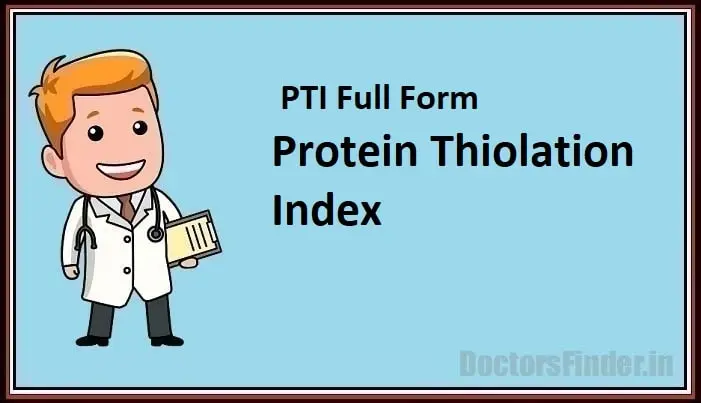PTI full form in medical term is Protein Thiolation Index. So, basically, it is a tool used in medical research to measure the health of cells and tissues. It does this by looking at something called thiol groups in proteins. Thiol groups are special molecules that help protect cells from damage caused by harmful things called free radicals. Now, thiolation is when a thiol group gets added to a molecule, like a protein. This can happen when the protein gets damaged or “oxidized” by free radicals. PTI measures how many of these thiol groups are still “reduced” (meaning they haven’t been oxidized yet) compared to the total number of thiol groups present in a sample.

A higher PTI value indicates that the cells or tissues being tested are in a healthier state because it means there are more reduced thiol groups and fewer oxidized ones. On the other hand, a lower PTI value might indicate that there is oxidative stress happening in the cells or tissues, which could be a sign of disease or other problems. In medical research, PTI is used to study things like antioxidant therapies (which help protect cells from oxidative stress) and diseases that are related to oxidative stress, like cancer or Alzheimer’s disease.